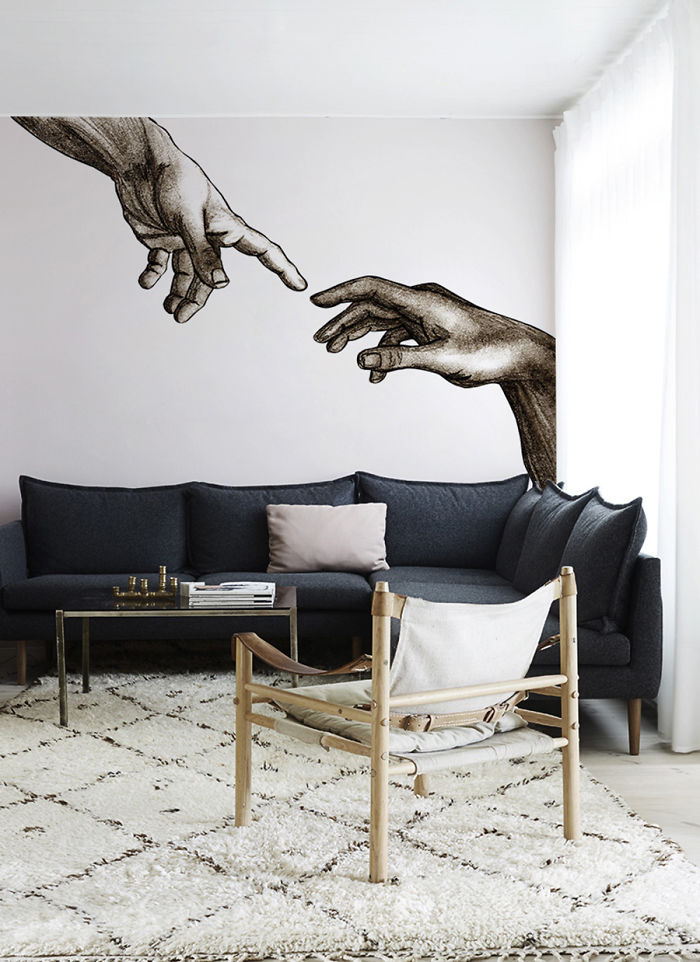
These 20 Mesmerizing Wall Murals Inspired By Masterpieces Will Teach You Some Art History
Art has been always a bottomless source of inspiration, not only for artists, but also for graphic and interior designers. Nowadays, as André Malraux predicted in 1947, reproduced art is widely accessible and everyone can create a personal art gallery at home.
With wall murals from shops such as PIXERS, Photowall and Wallpapered you can create a unique wall art – with reproductions of famous masterpieces such as the Sandro Botticelli’s Birth of Venus or Andy Warhol’s Campbell Soup Cans. You can be sure you will learns some art history thanks to these wall decorations that will convert an ordinary room into a refined studiolo.
More info: pixersize.com
#1 Michelangelo, Creation of Adam (Sistine Chapel, 1511-1512)
This scene of creation of Adam by the renowned sculptor and painter Michelangelo is one of the most outstanding pieces of frescoes located on the ceiling of the Sistine Chapel. The central part is the moment of creation – Adam’s and God’s hands are nearly touching. There’s no surprise that this scene is one of the most often reproduced artwork in the pop culture.
Source: PIXERS
#2 Sandro Botticelli, Birth of Venus (1484–1486)
The painting showing the most beautiful woman from the Greek mythology (which in the original version was named Aphrodite) has already been processed and used many times in visual culture. Venus herself may not be the contemporary ideal of beauty, but she is still an epitome of charm and feminine delicacy. Her birth from the sea foam off the coast of Cyprus is perhaps the most famous myth of antiquity.
Source: Wallpapered
#3 Birth of Venus
Source: PIXERS
#4 Raphael, detail from La Madonna di San Sisto (1512)
Few people know that the cute chubby cherubs gazing in an unknown direction form the lower part of a beautiful painting by Raphael Santi, the youngest of three geniuses of the Renaissance. Raphael’s Madonnas were already famous during the era of Cinquecento.
Source: PIXERS
#5 Hokusai Katsushika, The Great Wave off Kanagawa (1830-1833)
Hokusai is considered one of the greatest painters and graphic artists in the style of ukiyo-e. The Great Wave at Kanagawa is a woodcut, which, like his many other works, was the inspiration for the Impressionists. Hokusai created this series both as a response to a domestic travel boom and as part of a personal obsession with Mount Fuji. The original, contrary to what we might imagine, is tiny (25×37 cm).
Source: PIXERS
#6 Vincent van Gogh, Starry Night Over the Rhone (1888)
This painting is one of the night studies van Gogh created. He compared the stars to dots on a map and mused that, as one takes a train to travel on earth, “we take death to reach a star”.
Source: Wallpapered
#7 Vincent van Gogh, Almond Blossoms (1890)
Flowering trees were special to Van Gogh. They represented awakening and hope. He enjoyed them aesthetically and found joy in painting flowering trees. The works reflect Impressionist, Divisionist and Japanese woodcut influences. Almond Blossoms was made to celebrate the birth of his nephew and namesake, son of his brother Theo and sister-in-law Jo.
Source: Photowall
#8 Gustav Klimt, A Field of Poppies (1907)
Gustav Klimt is best known for his opulently gilded art nouveau portraits of women that epitomize fin-de-siècle Vienna. His paintings of flowers are delicate and subtle – perfect for a wall decoration in bedroom!
Source: PIXERS
#9 Gustav Klimt, Kiss (1907-1908)
Source: Wallpapered
#10 Kiss
Klimt created The Kiss at the time described as his „golden period”. The painting shows a pair of lovers totally lost in dressed in flowing robes, lost in a moment of affection. This romantic presentation has been simplified and reduced to basic forms by PIXERS.
Source: PIXERS
#11 Georges Braque, Violin and Newspaper (1912)
At the beginning of the twentieth century Braque’s work was associated with Picasso – together they contributed to the movement known as Cubism. In his painting the objects are broke into pieces, so as to show them in their whole dimension. PIXERS simplified the painting, so it looks good in minimalist interiors.
Source: PIXERS
#12 Pablo Picasso, La Rêve (1932)
The Dream is an artistic testimony to Picasso’s turbulent love life. It is the portrait of a 22-year-old artist’s mistress. The woman’s name was Marie-Thérèse Walter, and she later gave birth to their daughter, Maya Widmaier-Picasso. Simple forms and contrasting colors define the late style of Picasso. In 2013, the New York Post reported that Steven A. Cohen of SAC Capital had bought the painting from Wynn for $155 million. In PIXERS you can buy its wall mural version for a much much less.
Source: PIXERS
#13 Piet Mondrian, Composition II in Red, Blue, and Yellow (1930)
Mondrian’s painting are the essence of modern simplicity – they are a philosophical interpretation of the visible world through horizontal and vertical lines filled with primary colors. The tensions between the lines express different intensities of the energy they exude. Mondrian evolved a non-representational form which he termed neoplasticism – although his compositions may seem random, they all hide a deeper reflection on the geometry of the world. They’ve been discovered by interior designers as they look really good in modern interiors.
Source: PIXERS
#14
Source: PIXERS
#15 Andy Warhol, Campbell’s Soup Cans (1962)
This artwork by the most recognizable pop art artist consists of thirty-two canvases, each one measuring 51×41 cm, each consisting of a painting of a Campbell’s Soup can. Andy Warhol was one of the first American artists to introduce ordinary objects as the subject of his works. Now we can see it as a manifestation of the freedom of art, but also as an ironic commentary to the developing mass culture. What would you say for a soup can on your kitchen wall?
Source: PIXERS
#16 Roy Lichtenstein, Woman in Bath (1963)
Woman in Bath features a basic range of primary colours—blue, yellow and red.
Source: PIXERS
#17 Roy Lichtenstein, Drowning Girl (1963)
Free interpretation of one of the most representative works of the pop art movement, painted by Lichtenstein with oil and synthetic polymer paint on canvas. Utilizing the conventions of comic book art, Ben-Day dots echo the effect of the mechanized printing process.
Source: Fancy
#18 Joan Miró, The Gold of the Azure (1968)
This wall mural is a reinterpretation of a famous painting by Spanish surreal painter, “The Gold of the Azure”, which has a wonderfully poetic quality, reminiscent of Asian art.
Source: PIXERS
#19 Damien Hirst, Row (1988)
Damien Hirst is the most prominent member of the group known as the Young British Artists (or YBAs), who dominated the art scene in the UK during the 1990s. He is internationally renowned and is reportedly the United Kingdom’s richest living artist. He is commonly known for his shocking installation of dead animals in formaldehyde, but he began his artistic career painting colourful dots of equal size on canvas.
Source: PIXERS
#20 Street Art Inspired Wall Mural
Why not to transfer a graffiti from the street to home? Some of such artworks look really cool in interiors! Such as this one!
Source: PIXERS
2Kviews
Share on Facebook
 Dark Mode
Dark Mode 

 No fees, cancel anytime
No fees, cancel anytime 


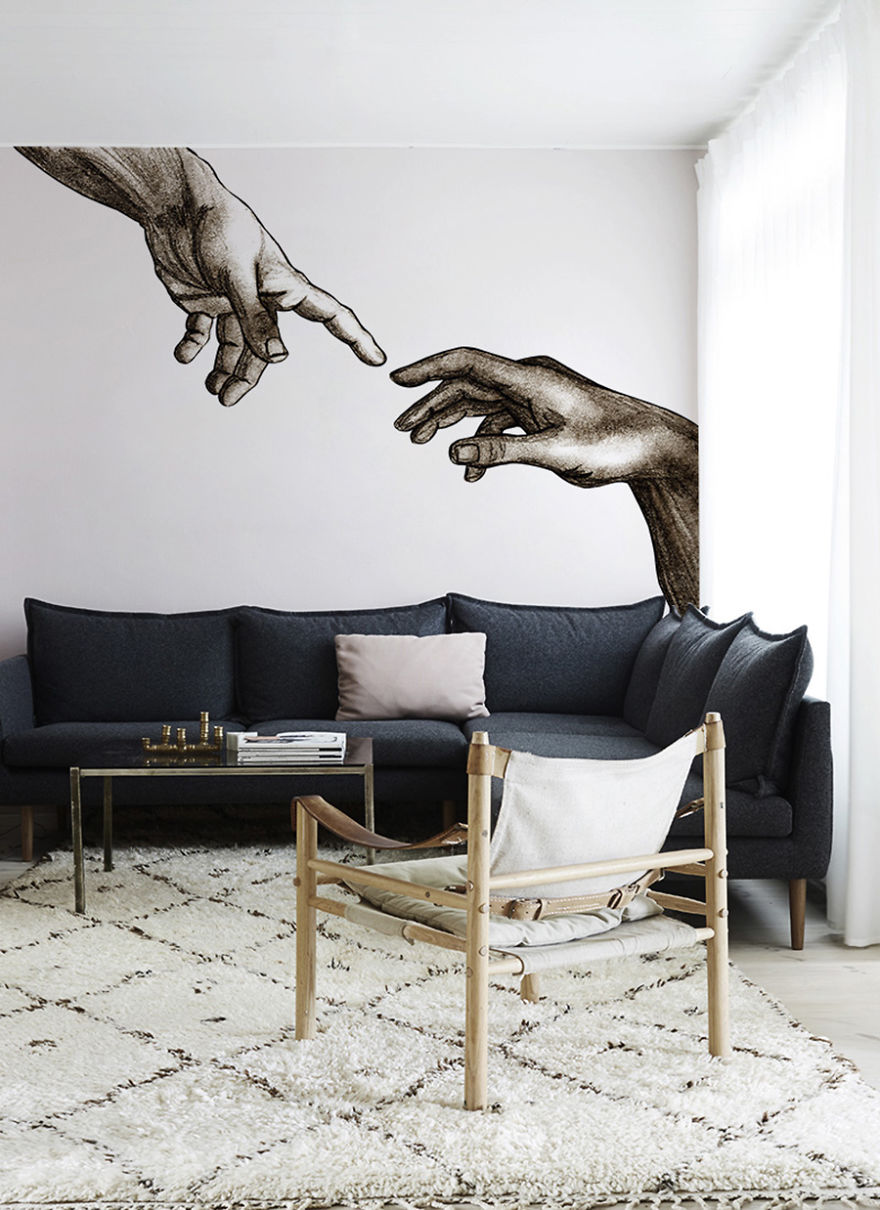
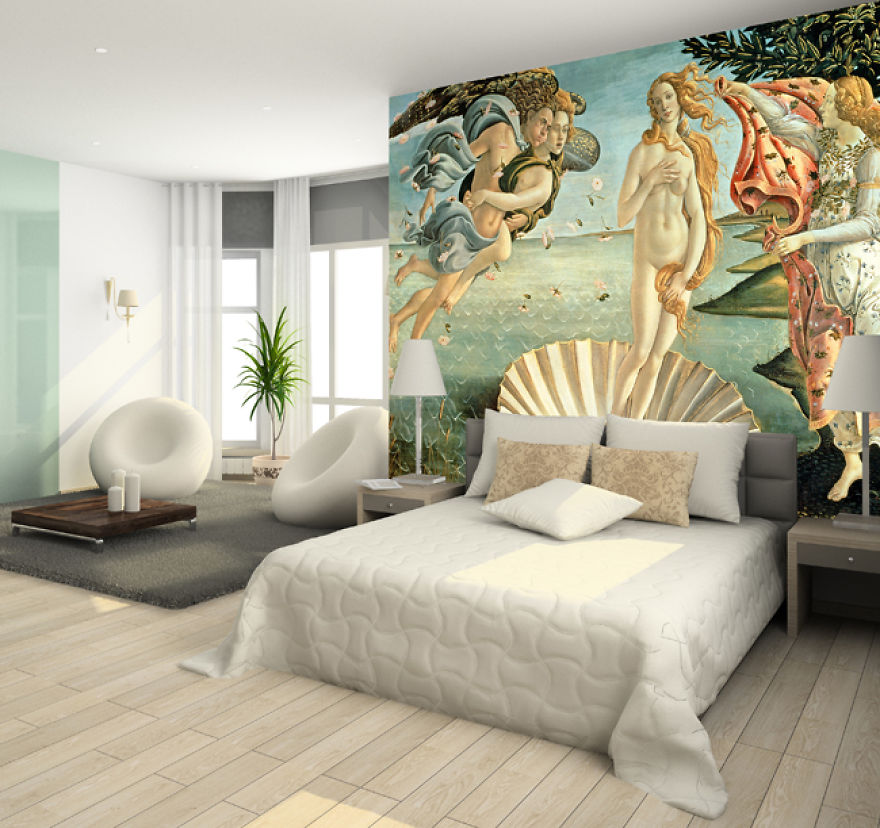
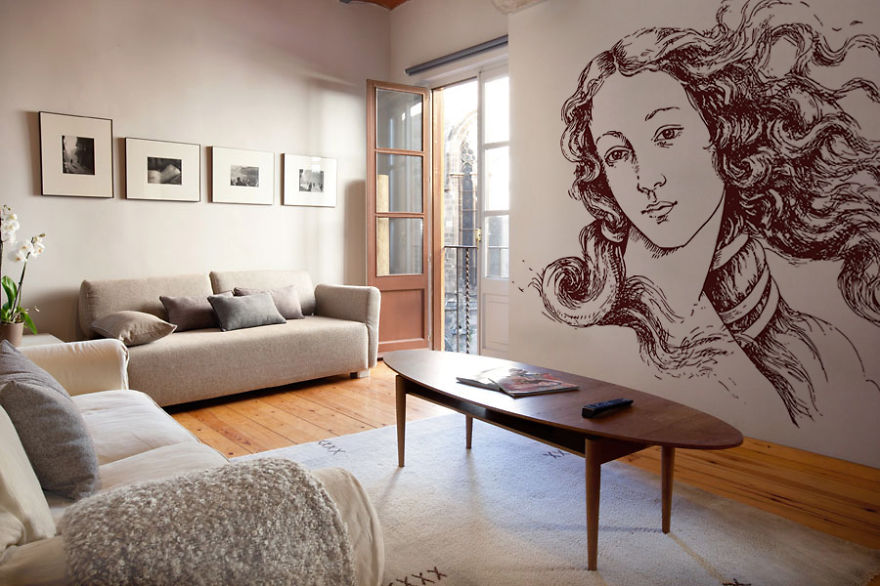
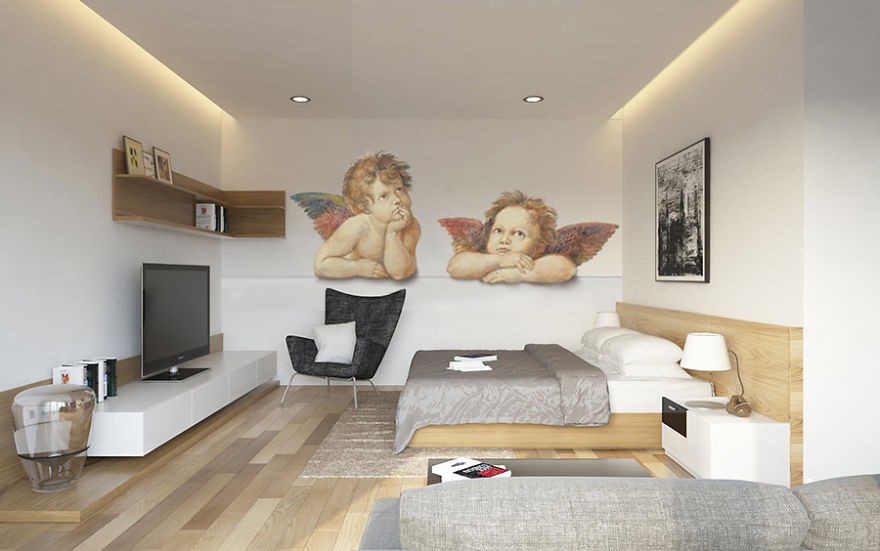
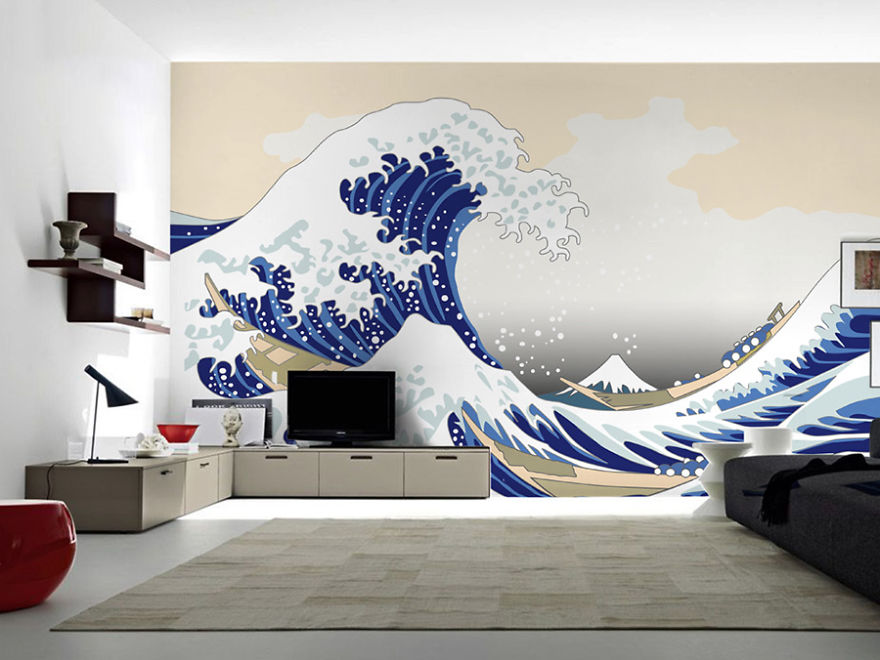
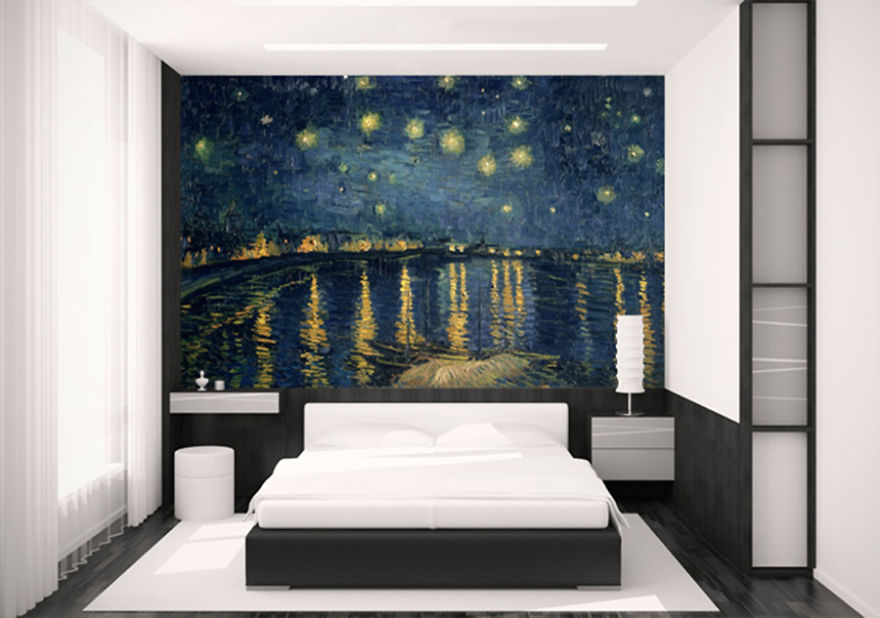
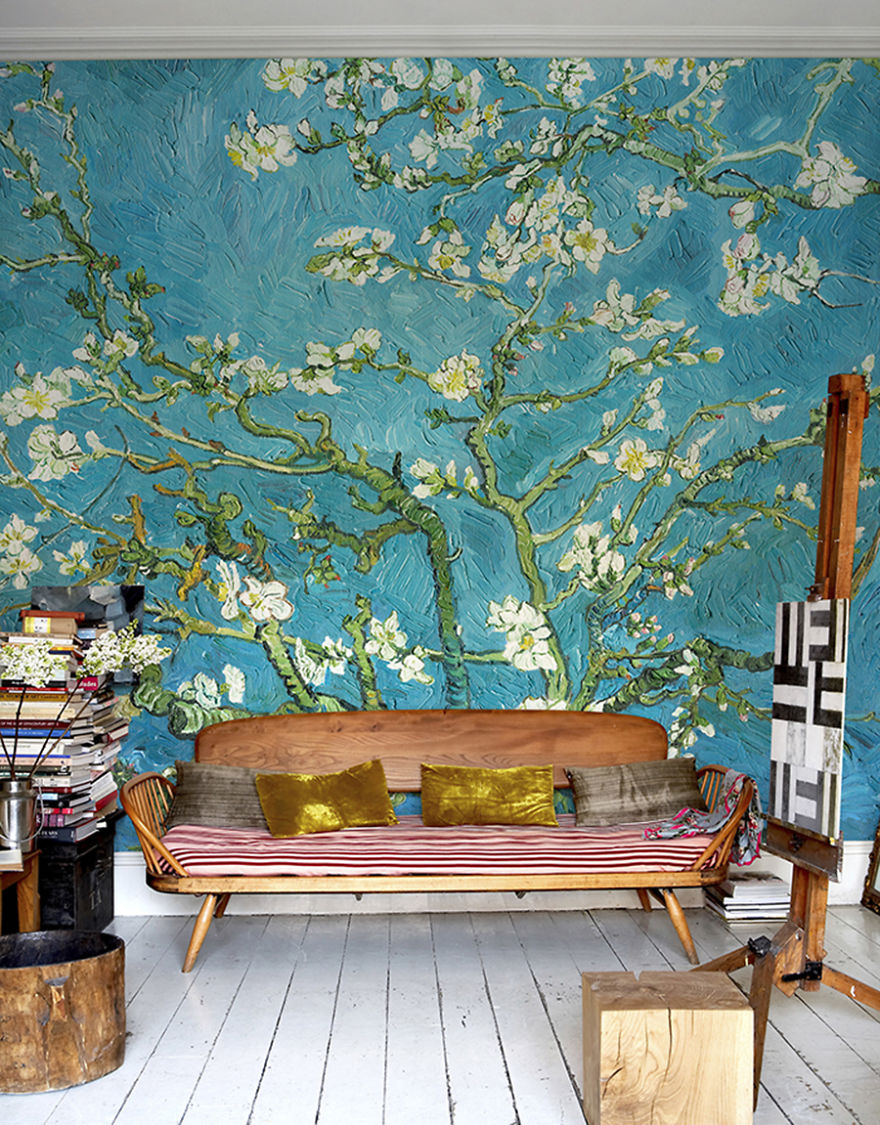
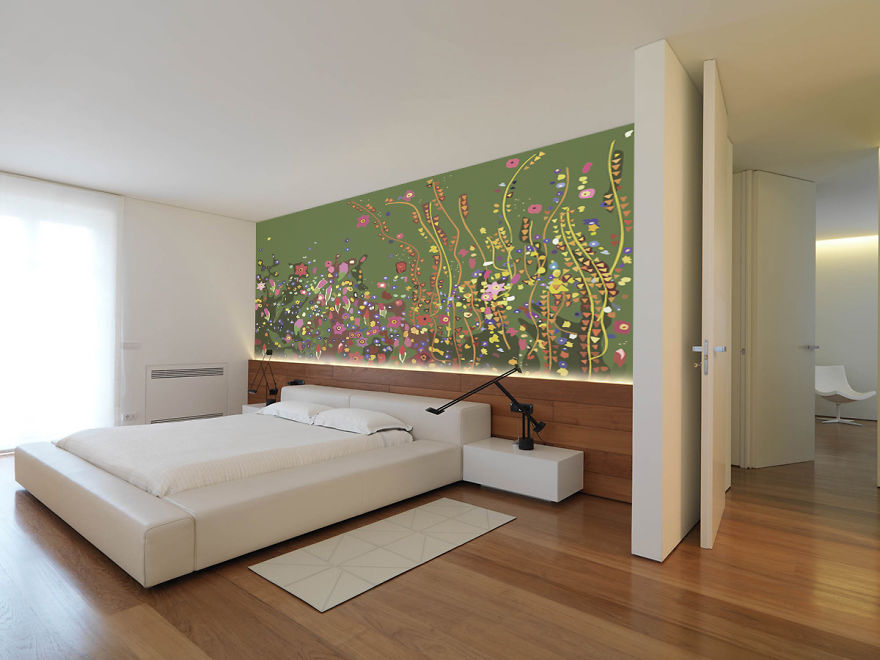
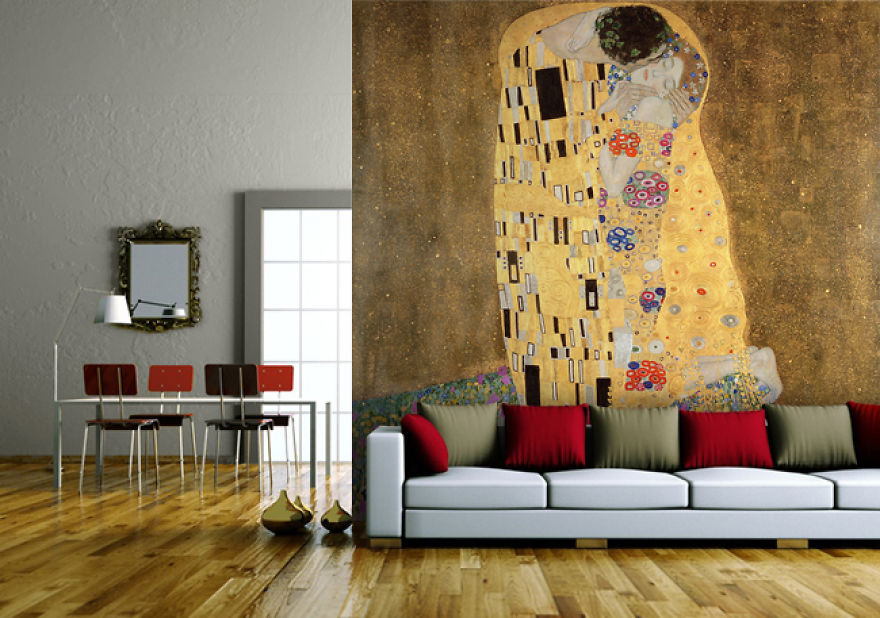
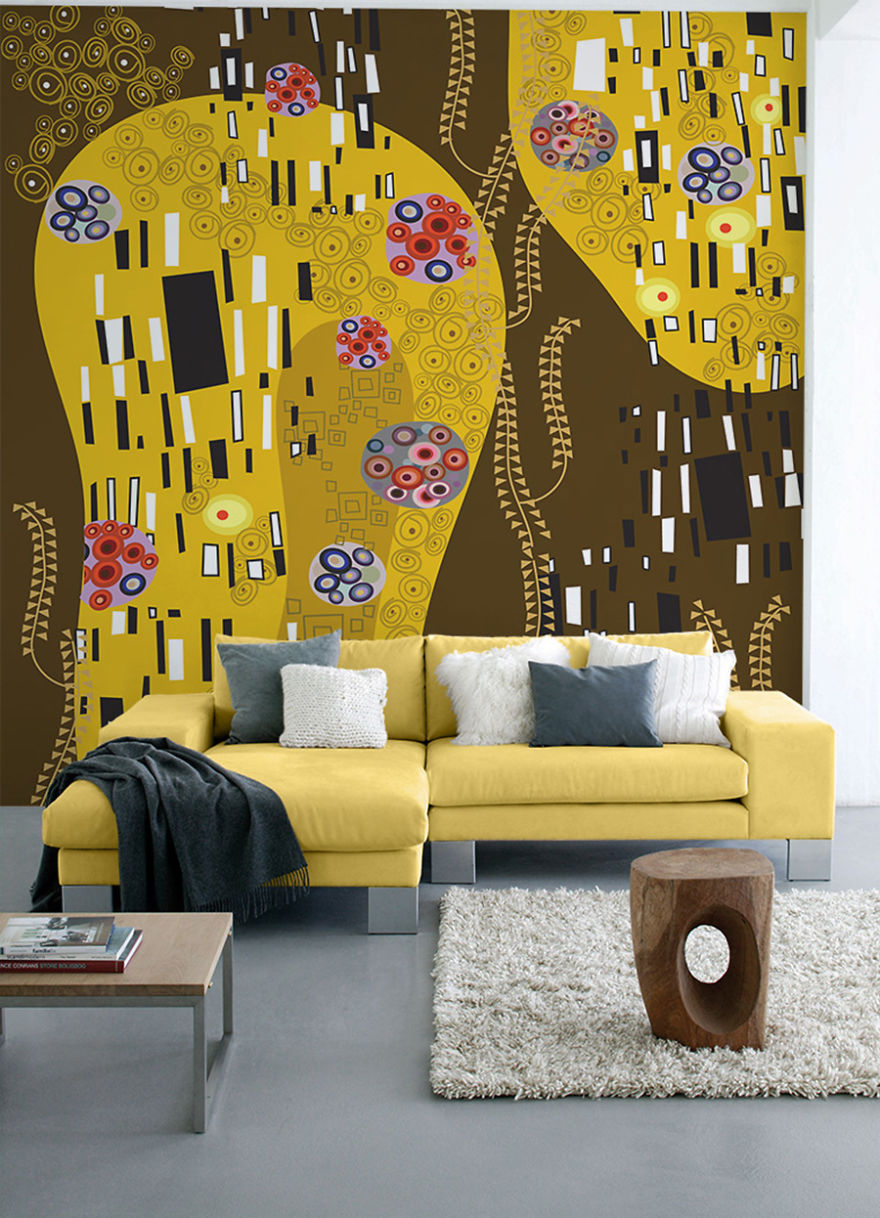
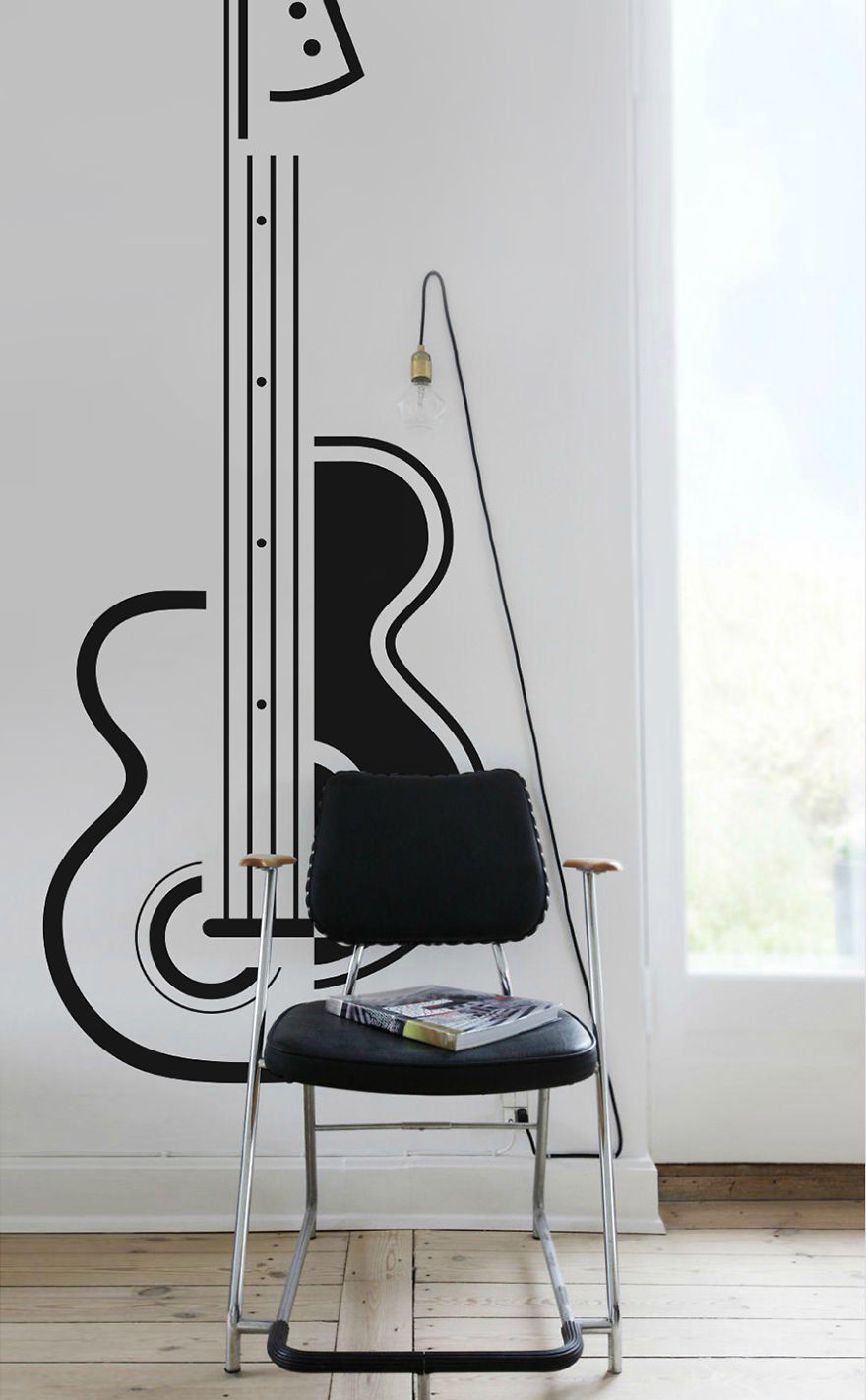
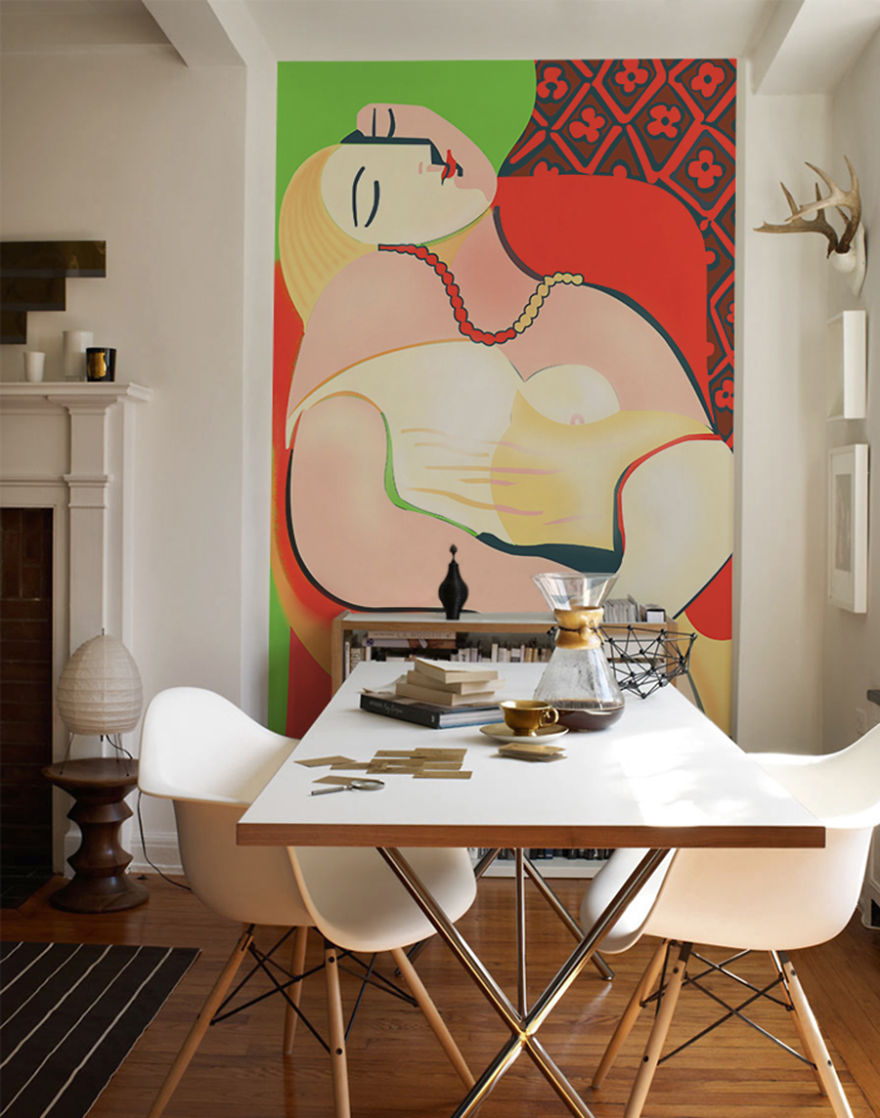

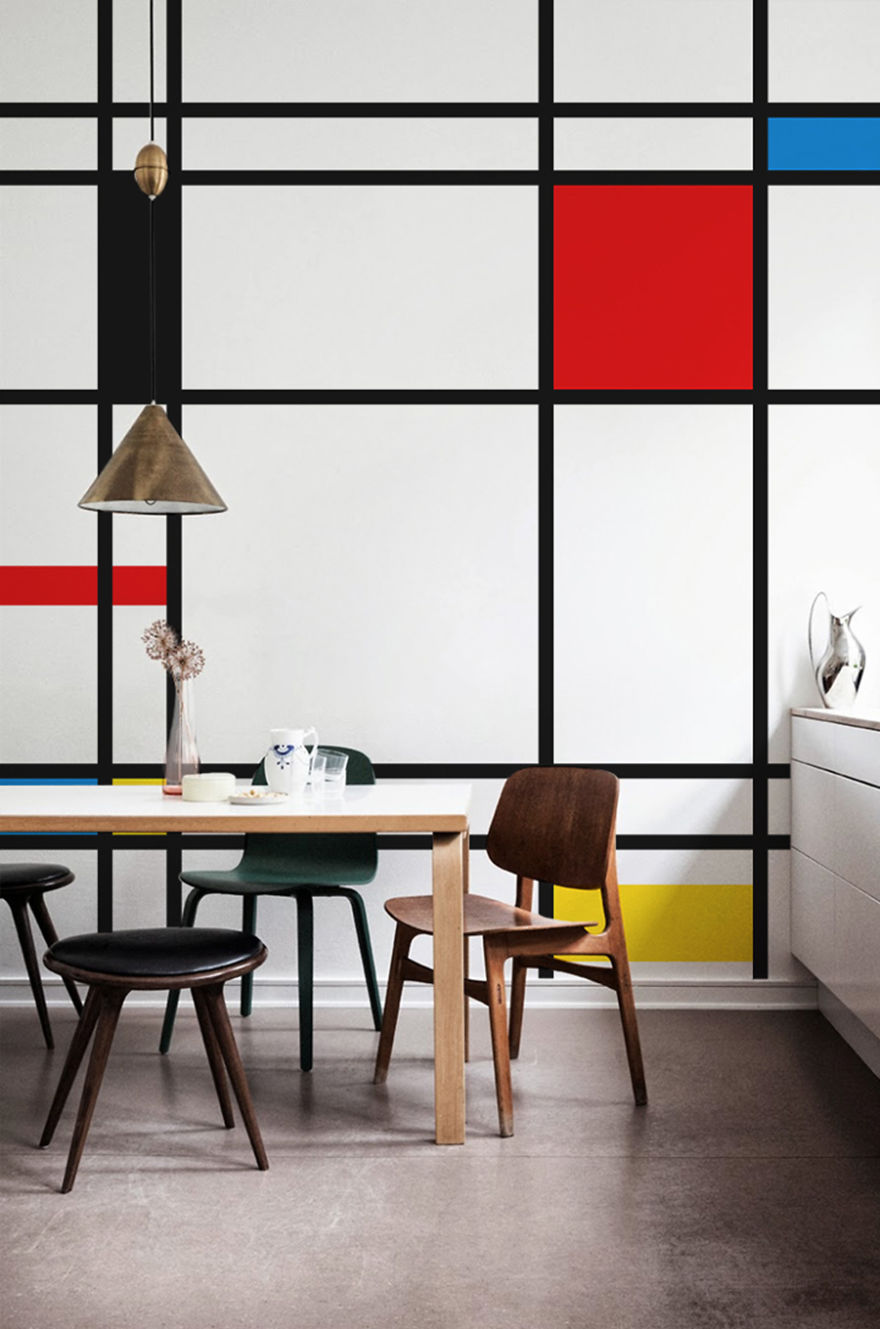
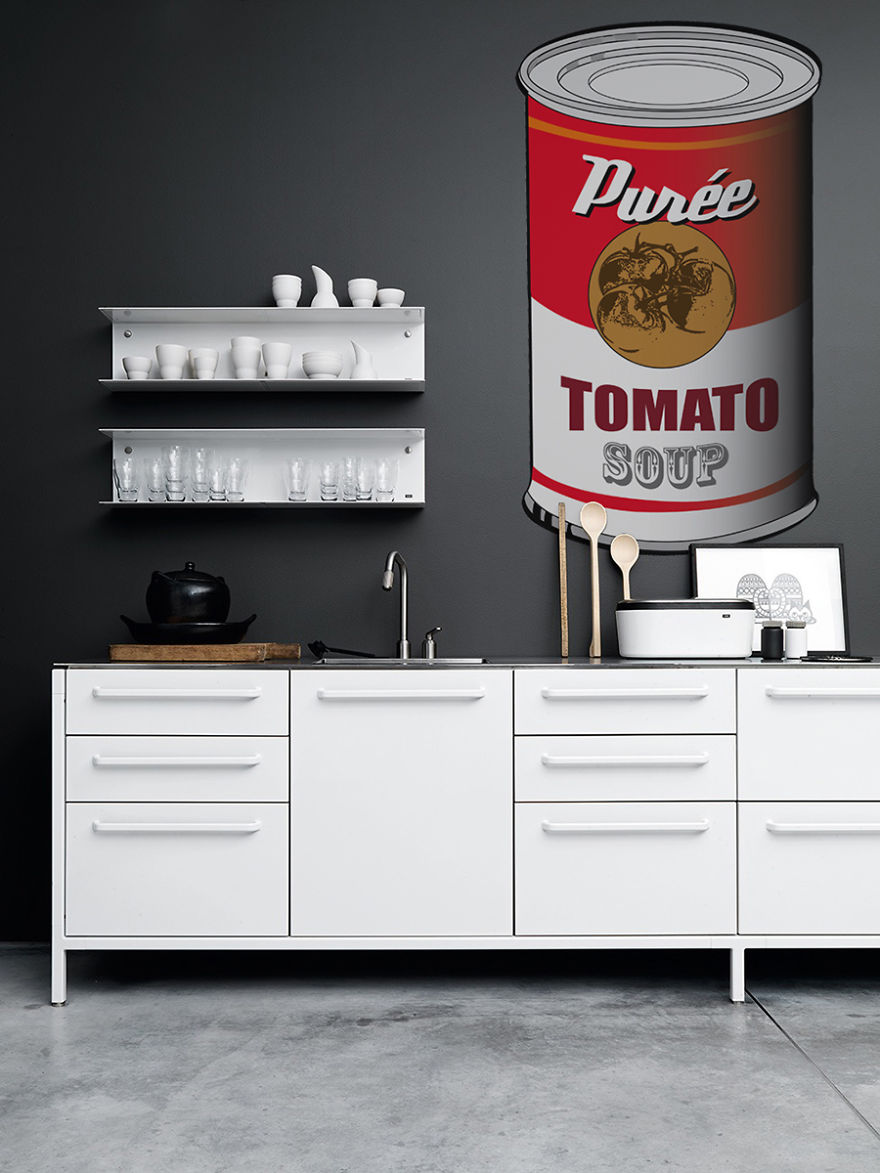

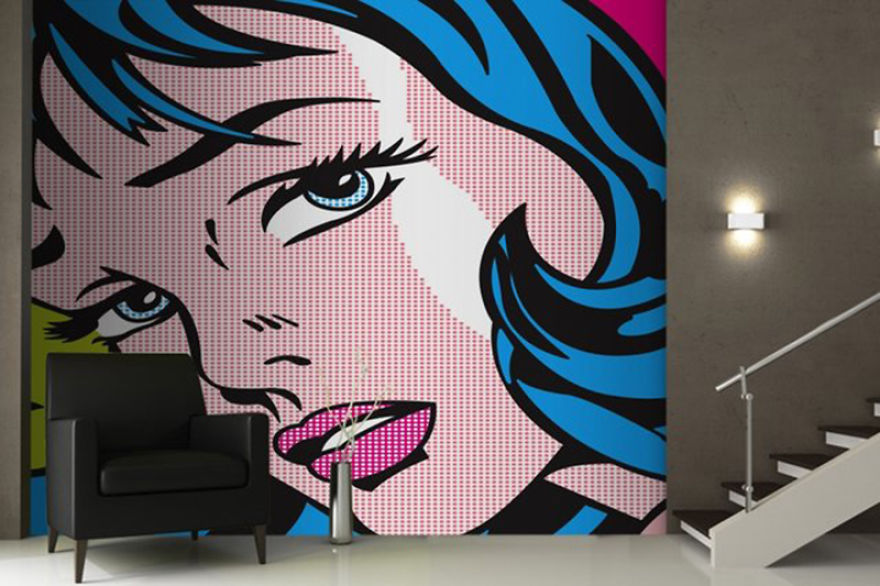
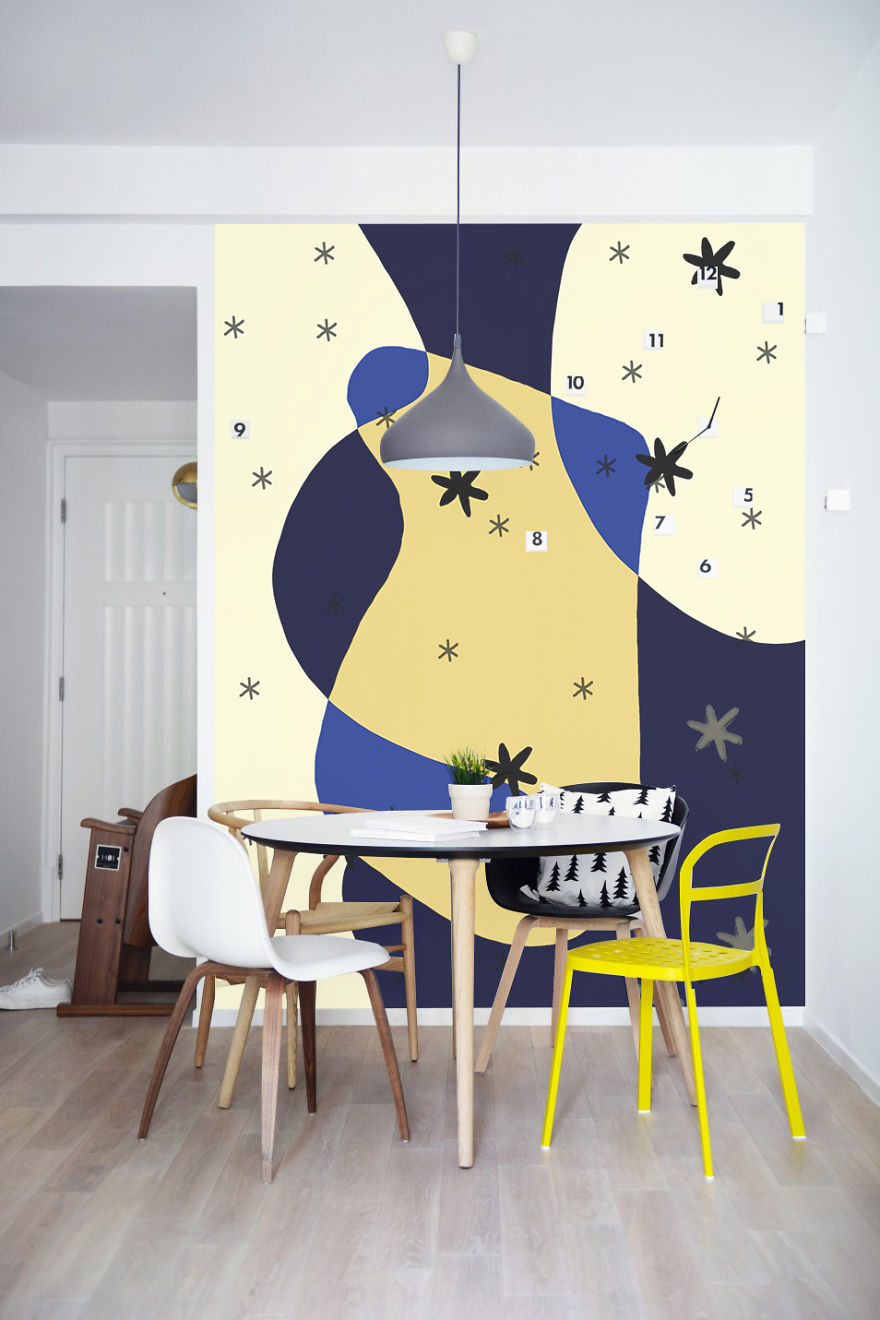
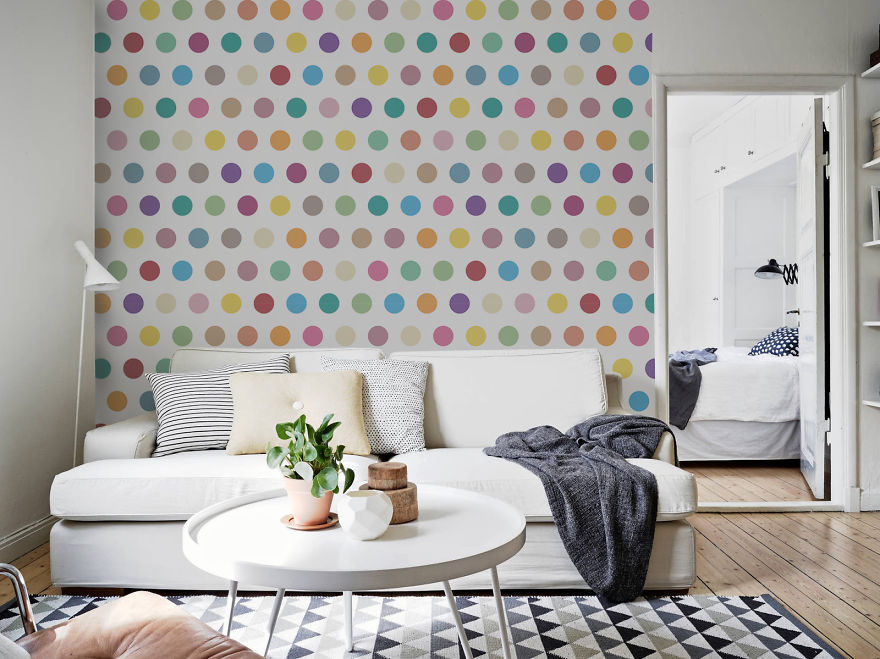
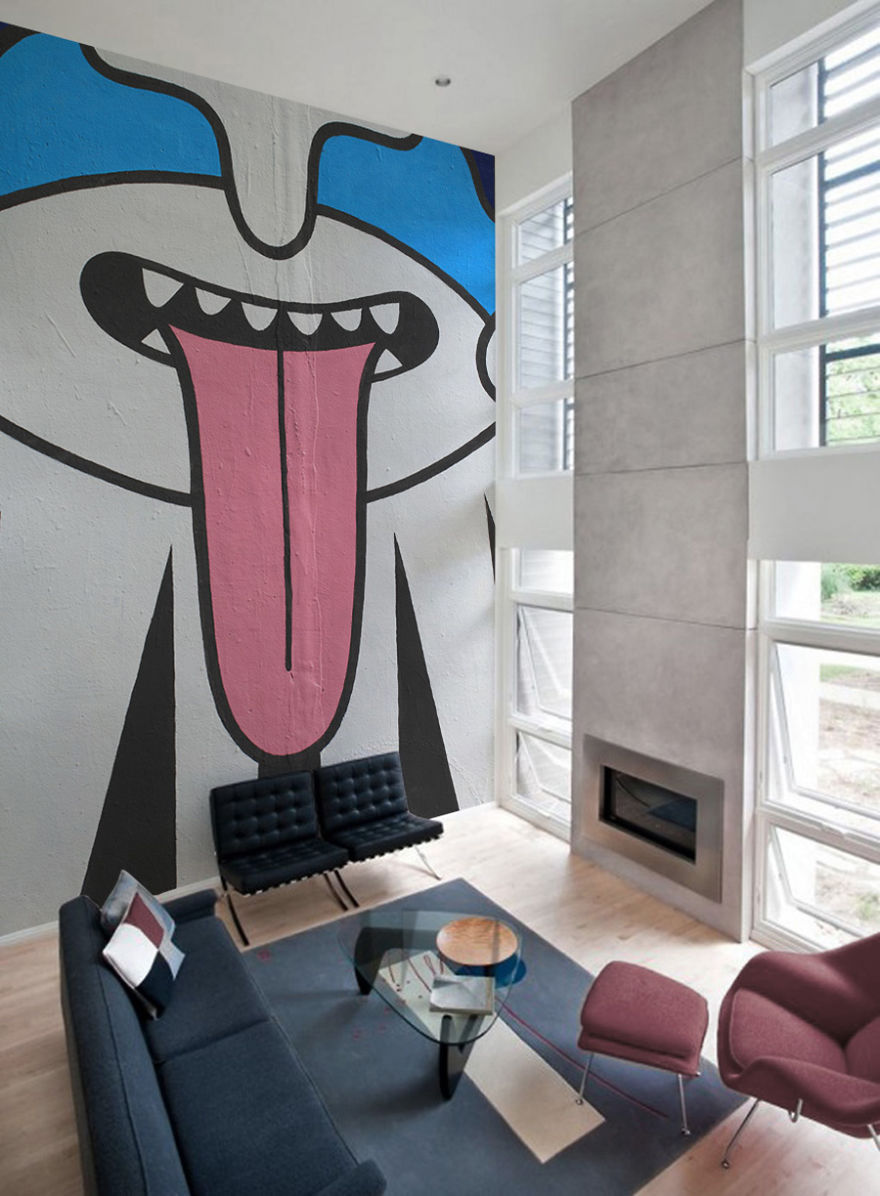
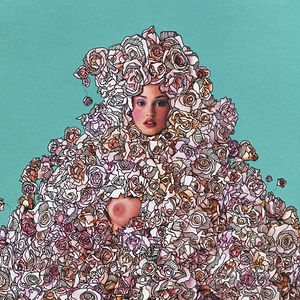










































11
0